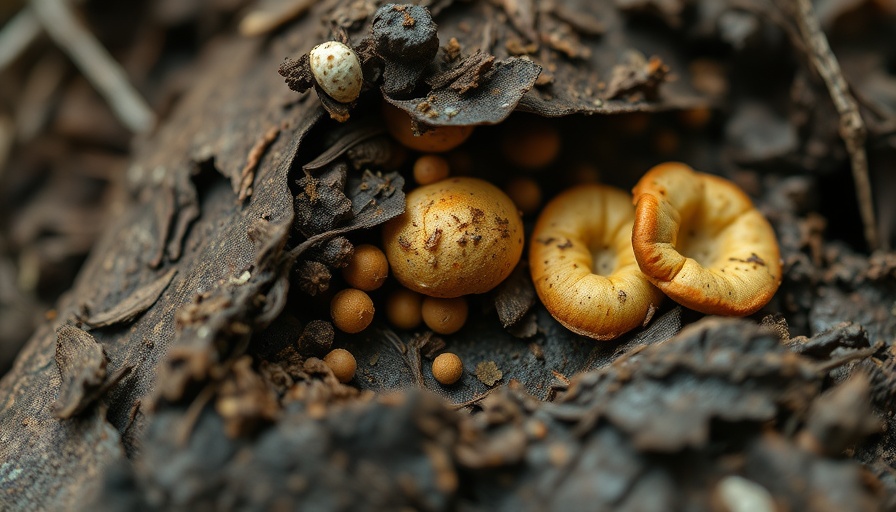
Powerful Fungal Enzymes Making Waves in Sustainability
In the quest for sustainable energy solutions, nature often provides the answers, and fungi are no exception. Recent research has unveiled the significant potential of enzymes derived from fungi to facilitate the extraction of valuable compounds from plant biomass. This breakthrough could revolutionize our approach to producing biofuels and bioplastics.
Why Plant Biomass is Valuable for the Environment
Plant cell wall components, particularly cellulose, represent a treasure trove of carbohydrates that can be transformed into eco-friendly fuels and products. However, accessing these components from complex biomass has posed challenges due to the intricacies of plant structures. This is where the unique fungi enzymes come into play, offering a pathway to unlock these resources.
Understanding the Role of Fungal Enzymes
The research highlighted in FEBS Open Bio introduces two key players: cellobiose dehydrogenase (CDH) and lytic polysaccharide monooxygenase (LPMO). Together, these enzymes work in harmony to break down plant materials, facilitating the extraction of cellulose for further processing. One significant discovery was a new type of CDH from the fungus Fusarium solani, noted for its adaptability to various plant types, including crops.
Real-World Applications: What This Means for Sustainability
The implications of this research are immense. By leveraging non-edible plant biomass, we can prioritize sustainable materials for energy sources and bioplastics without the ethical concerns linked to food production. Dr. Roland Ludwig, a key researcher from BOKU University in Austria, expressed optimism about the capabilities of these enzymes, suggesting they could profoundly impact future biotechnological practices.
Connecting Enzymes with Sustainable Living
As awareness grows regarding the environmental consequences of traditional fuel sources, innovations in biotechnology enable us to explore greener alternatives. By harnessing these fungal enzymes, industries can pave the way for cleaner energy solutions that align with the principles of sustainability. It's an invitation to take part in a growing movement toward eco-conscious living.
Take Action: Embrace Sustainable Practices
As we move forward, individuals and organizations alike are encouraged to reduce carbon footprints through informed choices. Understanding how fungi and technology can coexist in sustainable practices empowers us to make a difference. Whether it’s advocating for biodegradable products or engaging with renewable energy projects, there are numerous ways to participate in this bipartisan conservation effort.
 Add Row
Add Row  Add
Add 




Write A Comment